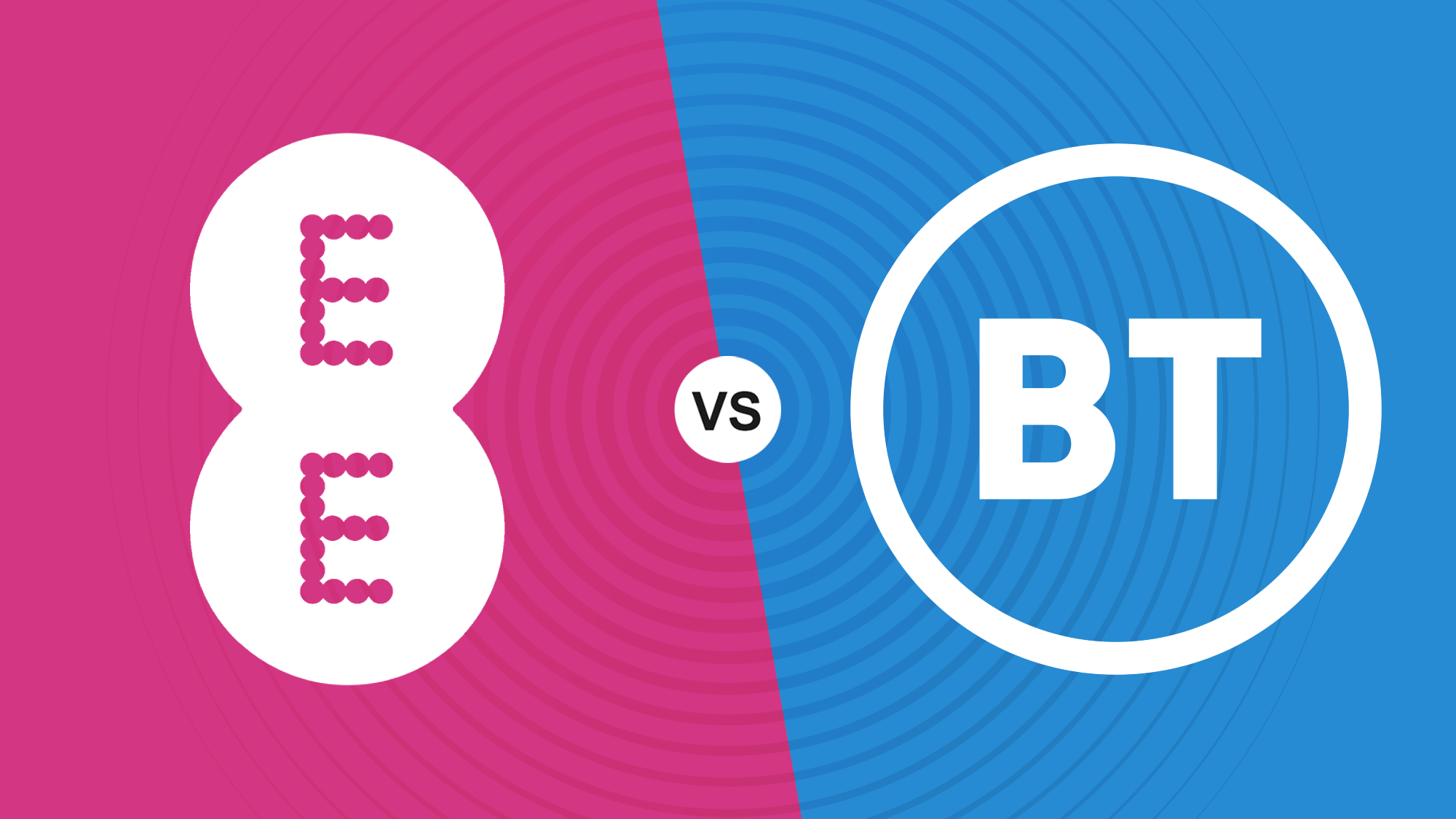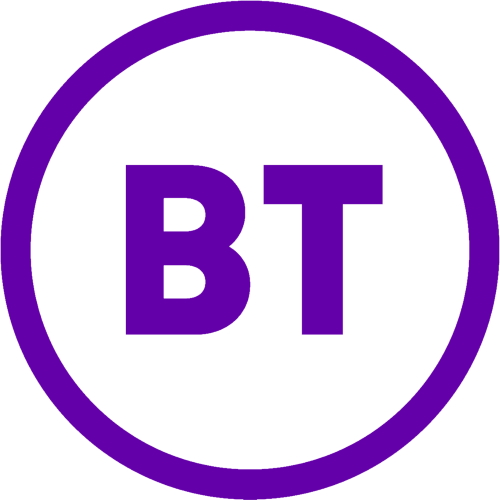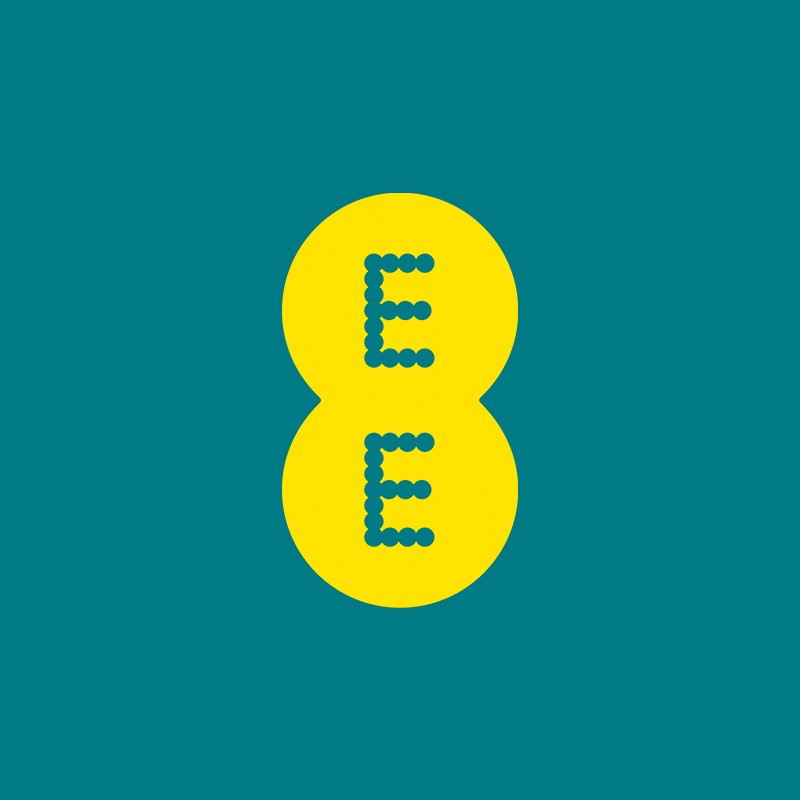
BT and EE are two of the country's most popular internet service providers (ISPs) for many reasons. Both companies offer a great selection of speeds ranging from basic ADSL options right through to 900Mbps packages that provide some of the fastest download speeds available on the market today.
On top of this, both companies are renowned for offering some of the best broadband deals available on the market and for providing excellent customer service.
Following a merger in 2016, EE is now part of the BT Group. This means that there aren't too many differences between the two providers. However, both brands are positioned differently and there are certainly reasons why you may prefer to partner with one rather than the other.
Unsure whether BT or EE is the right ISP for you? Well, we've put together this detailed guide that directly compares the two providers. We've also delivered our definitive verdict on which is better out of the two. Read on to discover everything you need to know.

ADSL: Yes
Fibre: Yes
Full Fibre: Yes
TV bundles: Yes
BT is one of the most popular internet service providers in the UK. It's easy to see why customers are happy to partner with BT, too. After all, the company offers a fantastic selection of speeds and a great collection of TV and broadband deals. However, the provider isn't perfect and the company's deals do sit at the more expensive end of the scale. Plus, many of its contracts last for 24 months and come with pricey cancellation fees.
For
- Great choice of speeds
- Internet and TV bundles
- Class-leading router
Against
- Deals are expensive
- 24-month contracts
- Full fibre access is limited

ADSL: Yes
Fibre: Yes
Full Fibre: Yes
TV bundles: Yes
Although EE remains best known as a mobile network, the company is making a name for itself in the broadband space. As such, current EE customers can expect decent speeds and discounts.
EE is actually a member of the BT family, so most of its available tariffs are similar to those offered by BT. This means customers can expect to enjoy a great amount of choice. However, its tariffs are expensive if you're not a current EE mobile customer.
For
- Great range of speeds
- Perks for EE customers
- Good customer service
Against
- Expensive for non-EE customers
- TV bundles aren't the best
EE vs BT: broadband options
As we mentioned above, due to a merger in 2016, EE is now owned by BT. In fact, when you visit the EE broadband website, it proudly states that the company's broadband is 'powered by BT'. As a result, the provider says that its customers 'enjoy the same trusted broadband technology that keeps millions of BT customers connected too'.
Due to this, the two broadband providers offer similar speeds and packages for customers. However, although the options available are broadly similar, there are some subtle differences you should be aware of.
By way of direct comparison, BT provides all of the following broadband speeds:
- BT Broadband Unlimited: 10Mbps avg. speed (this is only available in areas that cannot receive fibre speeds)
- BT Fibre Essential: 36Mbps avg. speed
- BT Fibre 1: 50Mbps avg. speed
- BT Fibre 2: 74Mbps avg. speed
- BT Full Fibre 100: 150Mbps avg. speed
- BT Full Fibre 500: 500Mbps avg. speed
- BT Full Fibre 900: 900Mbps avg. speed
By contrast, EE offers the following speeds:
- Unlimited Broadband: 10Mbps avg. speed (this is only available in areas that cannot receive fibre speeds)
- Fibre Broadband: 36Mbps avg. speed
- Fibre Plus: 74Mbps avg. speed
- Full Fibre Max 100: 100Mbps avg. speed
- Full Fibre Max 500: 500Mbps avg. speed
- Full Fibre Max Gigabit: 900Mbps avg. speed
As you can see, both BT and EE offer an excellent range of fibre and full fibre speeds. Plus, both ISPs also offer a package that provides average download speeds of 900Mbps. At the opposite end of the spectrum, BT and EE also both offer an ADSL option (although this is only available to customers who cannot receive a fibre package). This means that both providers offer an option to suit almost every customer.
Added to this, it's worth pointing out that both providers use the Openreach network and both specialise in 24-month plans. As you may expect in a scenario where one company is owned by the other, there's very little to split the two providers in terms of the packages offered and the speeds available.
EE vs BT: broadband coverage
As we hinted at above, there's also very little to split the providers in terms of coverage. This is because both BT and EE both use the Openreach network. This means that both ISPs can provide reliable connections to almost anywhere in the UK.
The Openreach network is used by the majority of the country's leading internet service providers, although Virgin Media is one notable exception to this rule. In the past few years, the Openreach network has expanded its reach significantly and has undergone a number of important upgrades. Now, 96% of the UK's population can get a FTTC connection. This means almost everyone in the country can access the fibre tariffs we've mentioned above.
Additionally, around 8 million homes in the UK can access the full fibre tariffs we've highlighted. This number is also growing by the day, as Openreach is expanding and upgrading the network as quickly as possible. At present, the aim is to deliver 'Ultrafast Full Fibre Broadband' to 25 million homes and businesses by December 2026.
But, although the Openreach network is solid and dependable, it cannot offer the fastest speeds available on the market today. This is because parts of the network still rely on older, copper-based cables. As a direct result of this, companies that utilise their own network, such as Virgin Media, can provide gigabit-capable speeds that are quicker than the 900Mbps options listed above.
EE vs BT: Broadband and TV bundles
BT offers a great selection of internet and TV bundles, including packages that have TNT Sports channels (this is the rebrand of its BT Sport channels) and access to Sky channels.
For example, Sky Cinema is available with BT's 'Big Entertainment' package. Alternatively, if you love sport, you can add every Sky Sports channel with the company's 'Big Sport' package. If you want the full channel listings, then BT's 'VIP' package is the one to go for.
However, although these packages provide you with great access to TV and especially Sky channels, they are very expensive (a VIP package and a Full Fibre 1 connection can typically cost more than £100 per month). So, if you're set on receiving Sky channels, then it's more than likely that a Sky broadband and TV bundle will be better for your needs because it will likely be cheaper. As Sky also uses the Openreach network, you'll be able to access a similar connection and speed to what you'd receive with BT.
By contrast, EE's TV service is based on Apple's TV 4K streaming box, which is different to a set top box. However, Apple's product does stream in 4K and comes with a nicely designed interface that makes it easy to access both streaming services and live channels.
However, you can only get EE TV if you also sign up for a mobile phone contract with EE too. This means that if your mobile plan is with a different provider, you can't bundle your internet and TV together.
EE vs BT: broadband cost
When it comes to cost, things do start to get a little bit muddled. Even though EE is owned by BT, the two brands price their packages differently.
Of course, the exact amount you'll pay for your internet will depend on the deals available when you decide to buy. However, from a top level perspective, BT's prices sit at the more expensive end of the spectrum. After all, the company's Full Fibre Essential package costs £27 a month (it's currently in the sale and is reduced from £30.99 a month). Meanwhile, the company's Full Fibre 900 package costs £55.99 per month. Plus, many of the company's packages also come with setup fees that range from £9.99 to £29.99.
Where things get complicated is the fact that EE offers two different pricing structures: an option for people who have a mobile contract with EE and an option for those who do not. For example, the company's Fibre Broadband package (which is directly comparable to BT's Full Fibre Essential package costs £24 for EE pay monthly customers and £27 for new customers. EE customers also receive a 5GB mobile data boost and the option to add Apple TV 4K.
Meanwhile the company's Full Fibre Max Gigabit, which is directly comparable with BT's Full Fibre 900 package, costs £55 for new customers and £49 for EE pay monthly customers. Plus, pay monthly customers also receive a 20GB mobile data boost, the Apple TV 4K option and an Xbox Game Pass Ultimate included at no extra cost for 12 months.
Ultimately, if you don't have a phone contract with EE, then there's very little in terms of a price difference between the deals offered by BT and EE. However, if you're a current EE pay monthly customer, you'll find it's cheaper to also get your broadband with the company.
All that being said though, neither of the two providers are the cheapest around and offers from others ISPs like TalkTalk are usually cheaper.
EE vs BT Broadband: customer services
When it comes to customer service, both providers perform well but we think that EE just has the edge.
When looking at the latest Ofcom data, we can see that BT performs better than the industry average, as the company only receives around 10 complaints for every 100,000 customers it has. However, the same study found that EE only received 7 complaints per every 100,000 customers. This actually means the company is the second-best in the UK (Sky came top).
When analysing the data in greater detail, both companies do perform well overall. For example, not only do very few customers complain about the service they receive, but customers who do want to make a complaint also face relatively short waiting times. Again, both providers outperform the industry average in this regard.
In truth, it looks as though you can't go wrong with either company when it comes to customer service. However, EE faces slightly fewer complaints than BT does and the average call waiting time is around 30 seconds shorter, so we give it the edge in this category.
Verdict
At the start of this review you may have noticed that we gave BT a slightly higher rating than the one we gave to EE. This is something we stand by, although we do admit that it's close and there isn't an awful lot to choose between the two.
Both offer a similar number of packages for a similar cost and both also provide excellent levels of customer service that beat the industry average. However, we give BT the edge because it offers an additional fibre option and a greater selection of TV and internet bundles.
However, if you're a current EE pay monthly customer, then we would likely recommend that you choose EE over BT as your discount will make your chosen deal cheaper.
That said, we still think that both providers are solid options and because BT now owns EE, there honestly isn't too much to choose between them.
Compare broadband deals
Not locked in with EE or BT? You can still find plenty of amazing broadband deals elsewhere. Check out our handy comparison tool below to find the absolute best deals for you!
Get daily insight, inspiration and deals in your inbox
Sign up for breaking news, reviews, opinion, top tech deals, and more.
Tom is a freelance copywriter and content marketer with over a decade of experience. Originally from an agency background, he is proud to have worked on campaigns for a number of energy providers, comparison sites and consumer brands.
